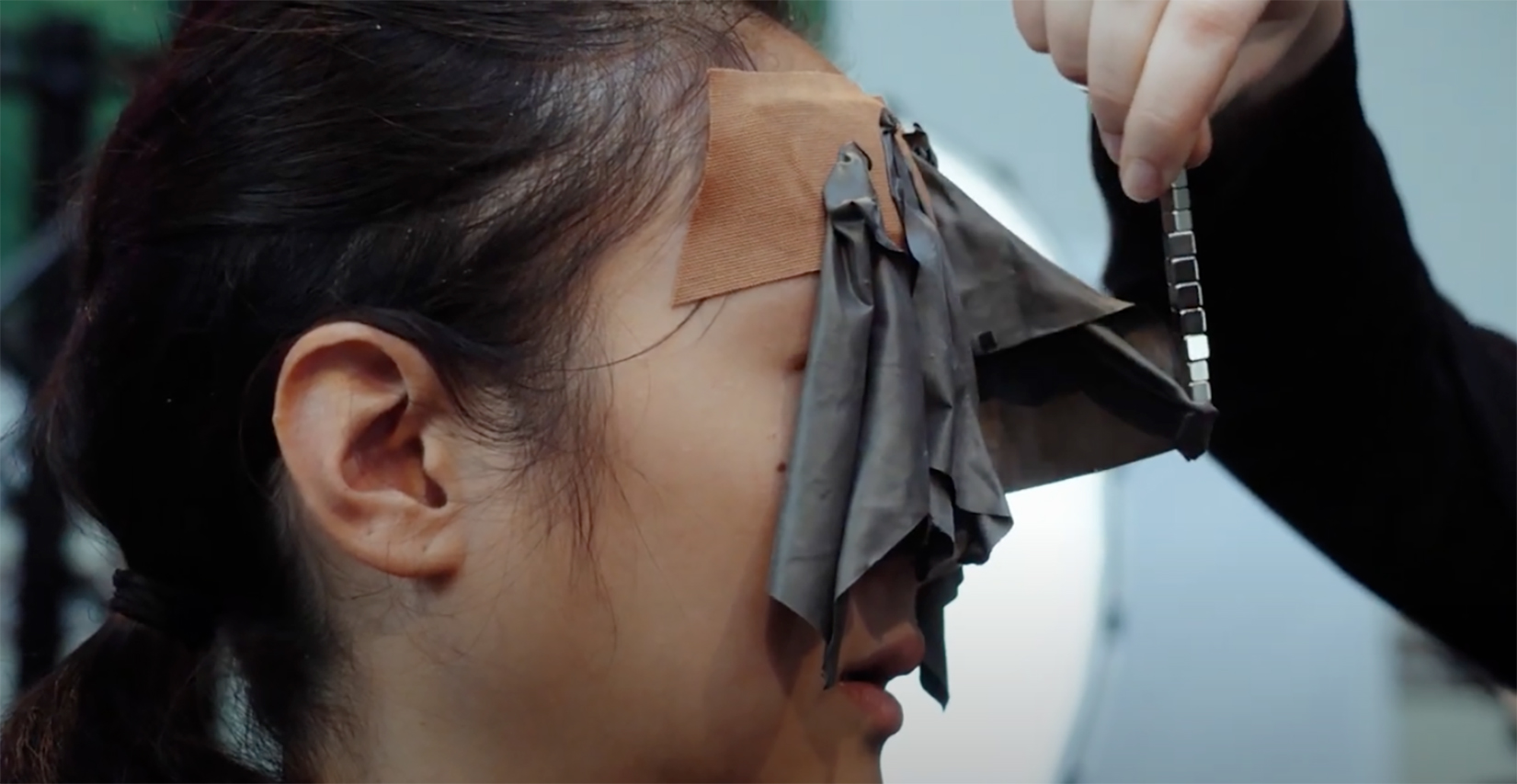Nieuws
Workshops Expressive Mechanisms
On 26th and 27th September 2024, Amy Winter and her collaborators at TU/e’s Material Aesthetics Lab, Maaike Bleeker and Marco Rozendaal organised a workshop that delved into the potential of soft robotic technologies to animate expressive forms, creating novel interactions between humans and systems. Results of the workshop were presented at the Dutch Design Week in the context of 4TU.Design United and in a video documentary
From Petri-dish to Performativity
Imagine a world where materials and objects adapt and transform as if they are alive. In this world, sensing, actuation, computation, and communication are woven into the ecologies of materials, artifacts, humans, and nonhumans that we live with and interact with. The field of soft robotics has traditionally focused on bio-inspired designs aimed at predefined functional outcomes—such as suction cups, robotic grippers, and other functional applications—often developed in tech-driven environments like maker spaces and labs. While these settings foster material exploration, they can feel disconnected from broader sociocultural contexts. How, then, do we bring soft robotic systems into the fabric of our culturally embedded, everyday lives? Bridging this gap requires us to move beyond conventional frameworks and explore how arts-based methodologies can inspire a new class of soft technologies, encouraging embodied and affective engagement with humans (Jørgensen, 2023).
Enabling invisible forces
Unlike traditional materials that rely on direct physical manipulation, magnetic actuation (Venkiteswaran et al., 2020) allows objects to move, shift, and transform with a seemingly ethereal responsiveness. Invisible forces—magnetic attraction and repulsion—enable artifacts to engage in dynamic, almost lifelike behaviors. These forms challenge conventional robotic design, offering immersive experiences that invite users to explore otherness—an encounter with something both familiar and alien (Boer and Bewley, 2018). During the workshop, participants will engage with magnetic activator/actuator props, assembling and co-creating narratives through speculative enactments. Grounded in performative new materialist perspectives (Barad, 2007; Gemeinboeck, 2021), this hands-on experience invites participants to rethink soft robots not simply as functional tools but as relational and performative materials. The workshop also introduces concepts from dramaturgy as a lens for reflecting on these enactments, sharing insights, and discussing their broader implications. Through this creative exploration, we aim to foster a deeper understanding of how soft robotic systems can enrich our everyday lives, moving beyond utility to cultivate more expressive, embodied forms of interaction.

